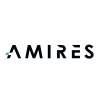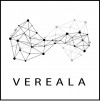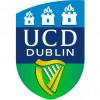
On Tuesday 23rd March 2021, 15-16 h CET NanoCommons - which NIA member University of Birmingham leads - and NanoSolveIT teams, in a joint initiative with the NanoSafety Cluster, will offer an online teaching event on the use of linked data resources, entitled Online SPARQL Access to WikiPathways and AOP-Wiki Webinar.
Linked data is basically structured data which is interlinked with other data so it becomes more useful through semantic queries. One way of doing this is through the integration of databases through RDF (Resource Description Framework, the standard model for data interchange) using the newly developed User Interfaces for WikiPathways and AOP-Wiki, providing a variety of useful features to facilitate exploring the databases and linking their data with other resources. The new features include a flexible, auto-populated query panel, SPARQL syntax highlighting, permalinks for SPARQL queries, and full-screen mode. The webinar will focus on the usability of the interface by walking through the various functionalities, and showing a variety of example queries against the WikiPathways and AOP-Wiki data. Furthermore, federated queries across resources will be executed to illustrate the strength of linked data. The webinar is for everyone who wants to learn how to use linked data resources such as WikiPathways and AOP-Wiki, and no preparations are necessary.
The expected duration is 45 minutes with time for discussion and support with queries afterwards.
Target audience: Bench and computational scientists looking into automated ways to capture and retrieve data and making them available to the community.
Expectation: Willing to learn new things and active participation in the interactive webinar.
Please, be aware that some personal information may be collected the organisers for statistical purposes, however, in a blinded and anonymous way. The workshop will be partially recorded for educational purposes.
You will find updates with more information about NanoCommons and training materials here.
Feel free to redistribute this information within your projects and networks. We are happy to have as many participants as possible and to help the community with the FAIRification of their data by offering insight into linking data resources in a more straightforward way.



















